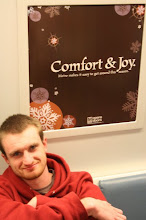Here is some quick history I found through a source on Wikipedia.org.
Ogoniland is a 404-square-mile (1,050 km2) region in the southeast of the Niger Delta basin. Economically viable oil was discovered in Ogoniland in 1957, just one year after the discovery of Nigeria's first commercial petroleum deposit, with Shell and Chevron setting up shop throughout the next two decades. The Ogonis, a minority ethnic group of about half a million people who call Ogoniland home, and other ethnic groups in the region attest that during this time, the government began forcing them to abandon their land to oil companies without consultation, and offering negligible compensation. This is further supported by a 1979 constitutional addition which afforded the federal government full ownership and rights to all Nigerian territory and also decided that all compensation for land would "be based on the value of the crops on the land at the time of its acquisition, not on the value of the land itself." The Nigerian government could now distribute the land to oil companies as it deemed fit. The 1970s and 1980s saw the government's empty promises of benefits for the Niger Delta peoples fall through, with the Ogoni growing increasing dissatisfied and their environmental, social, and economic apparatus rapidly deteriorating the Movement for the Survival of the Ogoni People (MOSOP) was formed in 1992. MOSOP, spearheaded by Ogoni playwright and author Ken Saro-Wiwa, became the major campaigning organization representing the Ogoni people in their struggle for ethnic and environmental rights. Its primary targets, and at times adversaries, have been the Nigerian government and the oil company Royal Dutch Shell.
Royal Dutch Shell plc, commonly known simply as Shell, is a multinational oil company of Dutch and British origins. It is the second largest private sector energy corporation in the world, and one of the six "supermajors" (vertically integrated private sector oil exploration, natural gas, and petroleum product marketing companies). The company's main business is the exploration for and the production, processing, transportation, and marketing of oil and gas.
You may recognize Shell for it’s many gas stations off the highways in the U.S. I guess there is more to this multi-million dollar company than the gas we have in our engines. The Ogoni people have a history of struggling because of Shell’s presence in Nigeria. They have received nearly no assistance from their government and have a lack of social services to go to. They have been treated as a “separate and distinct ethic nationality,” as if they are not even Nigerian citizens at all. And it seems their government will do anything to keep the petroleum selling for their own benefits, even if it means keeping more than half it’s country in poverty.
Ogoniland is a 404-square-mile (1,050 km2) region in the southeast of the Niger Delta basin. Economically viable oil was discovered in Ogoniland in 1957, just one year after the discovery of Nigeria's first commercial petroleum deposit, with Shell and Chevron setting up shop throughout the next two decades. The Ogonis, a minority ethnic group of about half a million people who call Ogoniland home, and other ethnic groups in the region attest that during this time, the government began forcing them to abandon their land to oil companies without consultation, and offering negligible compensation. This is further supported by a 1979 constitutional addition which afforded the federal government full ownership and rights to all Nigerian territory and also decided that all compensation for land would "be based on the value of the crops on the land at the time of its acquisition, not on the value of the land itself." The Nigerian government could now distribute the land to oil companies as it deemed fit. The 1970s and 1980s saw the government's empty promises of benefits for the Niger Delta peoples fall through, with the Ogoni growing increasing dissatisfied and their environmental, social, and economic apparatus rapidly deteriorating the Movement for the Survival of the Ogoni People (MOSOP) was formed in 1992. MOSOP, spearheaded by Ogoni playwright and author Ken Saro-Wiwa, became the major campaigning organization representing the Ogoni people in their struggle for ethnic and environmental rights. Its primary targets, and at times adversaries, have been the Nigerian government and the oil company Royal Dutch Shell.
Royal Dutch Shell plc, commonly known simply as Shell, is a multinational oil company of Dutch and British origins. It is the second largest private sector energy corporation in the world, and one of the six "supermajors" (vertically integrated private sector oil exploration, natural gas, and petroleum product marketing companies). The company's main business is the exploration for and the production, processing, transportation, and marketing of oil and gas.
You may recognize Shell for it’s many gas stations off the highways in the U.S. I guess there is more to this multi-million dollar company than the gas we have in our engines. The Ogoni people have a history of struggling because of Shell’s presence in Nigeria. They have received nearly no assistance from their government and have a lack of social services to go to. They have been treated as a “separate and distinct ethic nationality,” as if they are not even Nigerian citizens at all. And it seems their government will do anything to keep the petroleum selling for their own benefits, even if it means keeping more than half it’s country in poverty.



No comments:
Post a Comment